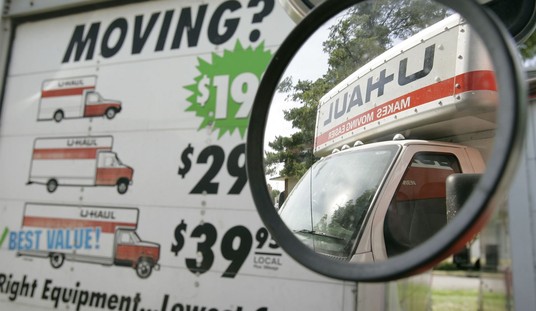Two months ago, we found out that over six billion dollars in Porkulus funds got credited as spent in false Congressional districts. Now the same group that first made that discovery has found millions of dollars disappearing into nonexistent zip codes as well (via Instapundit):
Closer examination of the latest recovery.gov report for New Mexico shows hundreds of thousands of dollars sent to and credited with creating jobs in zip codes that do not exist in New Mexico or anywhere else. Moreover, funds reported as being spent in New Mexico were given zip codes corresponding to areas in Washington and Oregon.
The recovery.gov site reports that $373,874 was spent in zip code 97052. Unfortunately, this expenditure created zip jobs. But $36,218 was credited with creating 5 jobs in zip code 87258. A cool hundred grand went into zip code 86705, but didn’t result in even one person finding work.
None of these zip codes exist in New Mexico, or anywhere else, for that matter.
The recovery.gov report also credits New Mexico with $131,139, though the zip codes receiving these funds (but creating no jobs) are in fact located in DuPont, Washington, Richland, Washington, and Gales Creek, Oregon.
These errors were found by checking the zip codes reported at recovery.gov against the United States Postal Service’s on-line zip code locator. Coming on top of our discovery of millions of dollars reportedly going to ten phantom New Mexico Congressional Districts, this latest discovery confirms that the data released by the Recovery Accountability and Transparency Board, at least for New Mexico, contains serious errors. All told, we have found over $27 million dollars that has been reported as going to either nonexistent Congressional districts or nonexistent zip codes.
As before, what we have here is incompetent database management. In the earlier case, which was much more significant in terms of dollar allocation, projects got credited to phantom Congressional districts. A competent database administrator would have set up the data-entry processes to check for legitimate CDs on the front end, which would have avoided the problem. Watchdog.org notes that Recovery.gov still has not corrected that problem, instead dumping the $6.4 billion in Porkulus spending into an “indeterminate” category rather than fixing the data.
This should have been an easier problem to avoid. The US Postal Service offers a website to check zip codes for accuracy, but even easier, most database programs have tables built into them for checking zip codes and proper city and state references. It’s the kind of process check that exists in every online-shopping website, which prompts the question as to why the government couldn’t figure out its own zip code system for its own database. Even that doesn’t address how legitimate zip codes from one state got credited to others, such as New Mexico.
For the millions of dollars spent on building the Recovery.gov website, we should have expected a professional database with industry-standard competence. Instead, we got a lesson as to why tasks that can be handled by the private sector should be left to it.







Join the conversation as a VIP Member